May 14, 2008
Free at last, free at last…after weeks up at the Laguna de Apoyo (6 for Pat; 3 for me), working our respective asses off, we've been liberated by the 'Belgian Vortex', our new name for Etienne. All in all, it was a good thing we did; we helped him out, moved him closer to the vague concept he has of "completion", and made the place presentable for his blowout fiesta Sun. May 18th. But man, we were ready to leave. We are trying hard not to dwell on the fact that we've accomplished next to nothing on our own place, hoping that in the month remaining to us, we will at least get ourselves somewhat ahead.
Things are a bit unstable in the country right now, thanks to a massive transportation strike. This is the result of the bus and taxi drivers finally having had enough of the exorbitant fuel prices, as much as $5.25/gal. To put that into proportion, as it represents roughly a day's wages for the average worker, tantamount to a US citizen paying $56/gal. based on a $7/hr min. wage. Imagine that! Taxistas need ten fares to make enough for one gallon. And what makes all of this really burn is that lower fuel prices were the cornerstone of Ortega's campaign platform, and a large part of what convinced 38% of the populace to re-elect him. He had big talk about his close relationship with Chavez, and how once he was in office, he would make Nicaragua friendly to the lower echelons once again. To prove his point, he distributed thousands of free bright pink baseball caps emblazoned with "¡Tu ganás! con FSLN" (You win with the Sandinistas!), and had massive billboards erected from coast to coast and border to border, 25 feet of Daniel, fist raised, announcing that the poor of the world were about to have their day. Needless to say, with some very minor exceptions, even his most loyal followers are more than a little disenchanted at the moment. And everyone else? Blockading major roads, and as of last night, burning delivery trucks entering Managua. Adding to the frustration of the masses is the apparent disappearance of $650 million. It came from Chavez, so they say, but the government refuses to account for where it went. Rumors range from the idealistic (it was used to pay off national debts), to the cynical (it's in an offshore account awaiting Daniel's retirement), with most people simply assuming it was distributed equitably amongst his cabal, and will never be seen again.
In the meantime, we are keeping our tank filled, and traveling only in daylight hours. This second adjustment after Pat decided to run down to Granada one night from the Laguna, a trip that usually takes 20 minutes, and arrived home five hours later. The road (there's just the one) was blocked by dozens of busses, and while there were police milling about, their role seemed limited to keeping the drivers from getting too unruly. When the busses finally pulled off the road to sleep for the night, Pat drove through, only to have some drunken strike supporter lob a brick at the jeep. It missed, but irritated him since on the whole, we support the strike, and along with the rest of the country, are hoping for a speedy resolution.
One of the perks of life at Etienne's work camp was the monkeys. Variously called 'howlers', for the amazing sounds they make, or 'congos', because they are sort of black, they are very entertaining. Most afternoons, a—what? tribe? group? pride? troop?—come down into the trees above and around the pool, and frolic for a few hours. The juveniles play about, practicing their swinging and branch-grabbing skills, while the older females hunch in small groups gossiping and picking fleas off each other. One or two males keep watch, while the patriarch, a large and very grouchy beast, perches above everyone making aggressive "ooh-ooh-ooh" noises. Once in a while they get spooked and in a blur, head for more distant trees, the mothers grabbing their young and flinging them up on their backs where their tiny hands cling on for dear life as mom flies through a sea of leaves, hardly seeming to touch each branch as she passes. And then, they're back, as thought nothing had happened.
Then there are the macaws and parrot, all of whom live up near the caretakers' apartment at the top of the drive. Most of the day they doze, emit strangled squawking noises, and entertain themselves by pulling the laundry off the line. But 5-7, a.m. and p.m., is their time to shine. They talk, sing, scream, fight, holler, whistle, bark, cough, and basically generate enough noise to make the idea of macaw fricassee sound very appealing. One of them has a substantial vocabulary, including "I love you", Buenos dias", "Chulita" (one of the dogs—and it really messes with her to hear her name over and over), "Walter" (the caretaker, of whom the birds are all very fond), and now, thanks to my efforts, "Patrick", but only when prompted (I repeat "Patrick" 27 times and eventually get a weak "Pat-tik" in return.)
The man responsible for our entering Etienne's orbit in the first place showed up with his wife a few days ago. His mother and mine are in Florida Pen Women together, and I've become friends with her as well (she's 93, and while her mind slips occasionally, she's still an amazing person.) When she learned we were to be spending time in Nicaragua, she insisted I get in touch with her son (David, who lives in Santa Cruz, CA), and from him, connect with one of his oldest friends who has lived down here for over 35 years. I did so, and now that I've met him and Clea (who's also know Etienne for years—he introduced the two of them!), and like them very much, I can hardly bring myself to blame them for encouraging our acquaintance with their megalomaniacal Belgian buddy. While Pat was finishing things up the other day, I went off sight-seeing with them around Masaya, a city south of Managua. We first hit the Artisan's Market, which I'd heard a lot about but we'd never gotten around to visiting. I'd envisioned typical Latin American mercado insanity, but in fact, it's clearly designed for the tourist crowd; clean, organized, quiet, and very pleasant, if a bit too sterile for my taste. Still, everything made or grown in Nicaragua (as well as Honduras, El Salvador, and Guatemala) is on display, from hammocks to headboards, cigars to ceramics. It's a bit of a maze, however, and Clea and I spent nearly an hour trying to find our way back to the one hammock vendor out of dozens that had the exact model she wanted. Mission accomplished, we found David, grabbed some lunch, and headed for the Masaya Volcano National Park.
Nicaragua is not called the "Land of Lakes and Volcanoes" for nothing; there are dozens of the craggy cones running the length of the country, many still active. Masaya is one of those, but due to a complete lack of concern for potential lawsuits, we were able to drive extremely close to the rim, and peer down into the massive smoldering crater. It was impressive, and bore a surprising resemblance to the volcano we saw on the Big Island of Hawaii a few years back. David reliably informed me that most volcanic zones looked alike, resulting in some discussion with Clea who pointed out this rule did not apply to Italy… The park had a sprawling and extremely informative visitor center, complete with scale-size models of all the volcanoes in the country, and detailed info on them all. There were samples of all the plants known to grow anywhere nearby, taxidermied animals, including a rather mangy miniature deer that bore a disconcerting likeness to Dan Quayle, and samples of the various types of volcanic rock, with their Hawaiian names proudly displayed. David, who spent the first 18 years of his life in Panama, followed by stints in the Dominican Rep., and Puerto Rico, and is very partial to these sorts of countries, said without a hint of malice, "There are definite signs of intelligence in this country", after being completely bowled over by the level of thought, detail, and scientific awareness poured into the displays. I think he was more impressed by Masaya than by the much more sophisticated and elegant, tourism-friendly city of Granada…
Finally, the rains are back. We had a deluge of such intensity last Saturday that all of Rivas lost power for 36 hours, and overnight, trees found their leaves and blossoms, dormant since late January. We hope this will not impede our progress on the house in the time we have left (since most of the work involves digging holes in the ground and burying things, a lot of rain could potentially make life difficult). I'll keep you posted.
Subscribe to:
Post Comments (Atom)


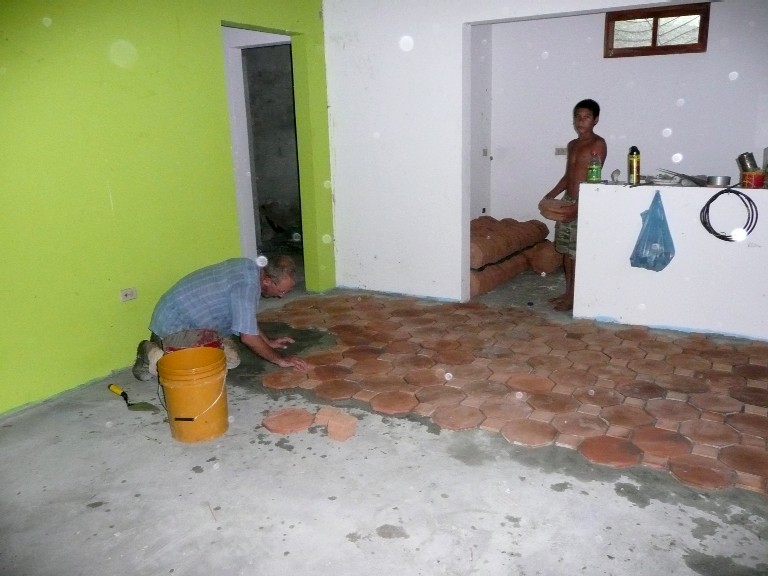
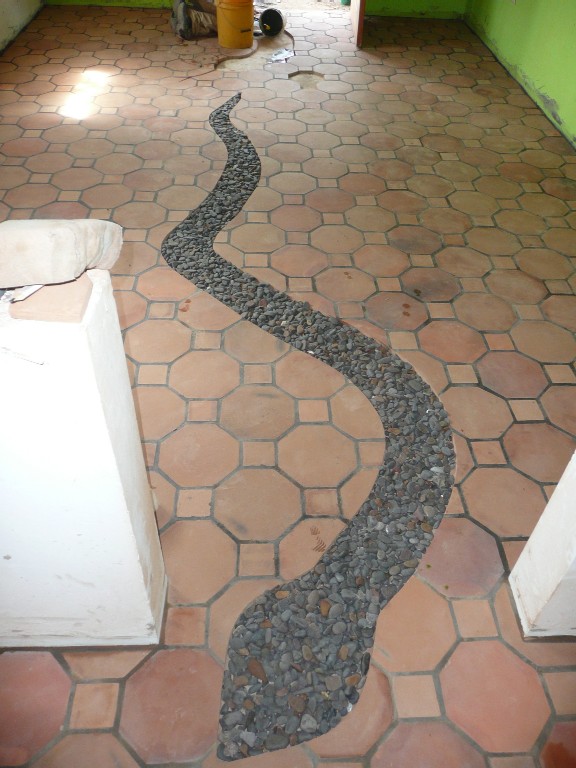

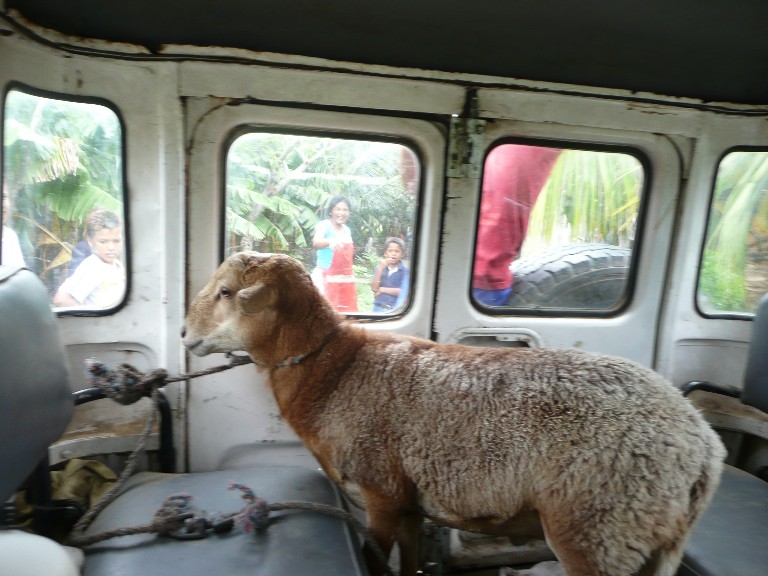
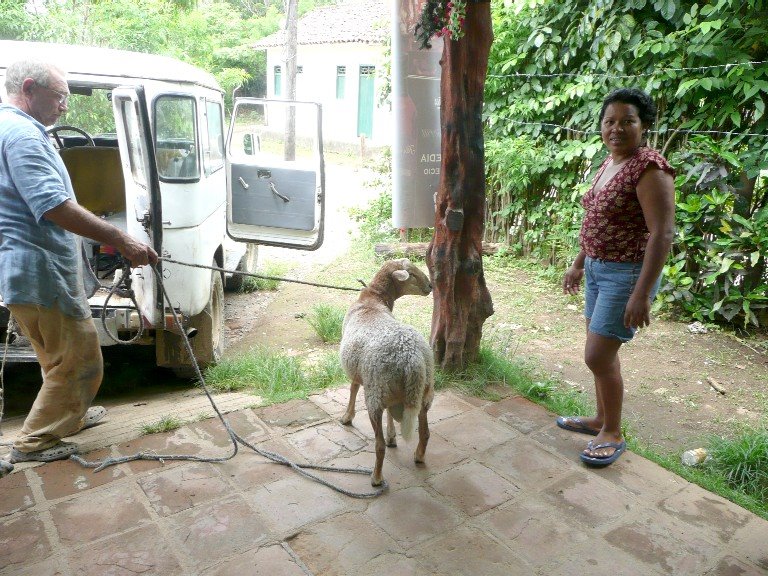
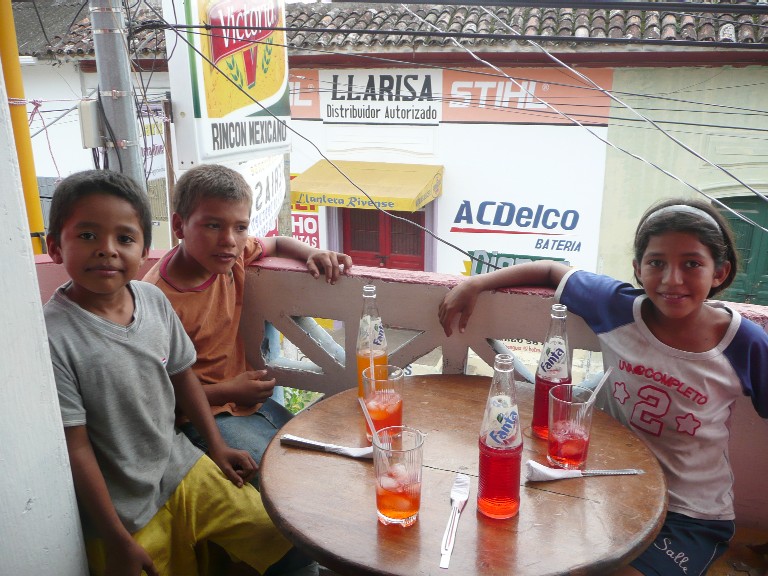

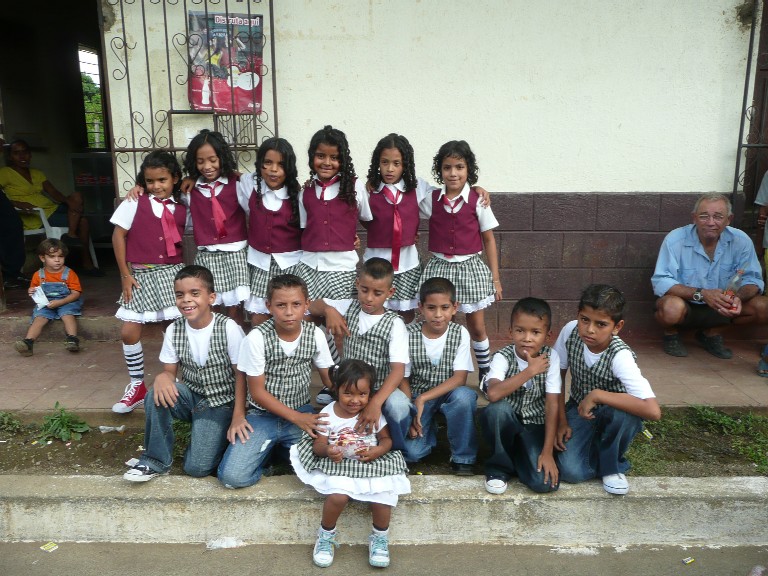
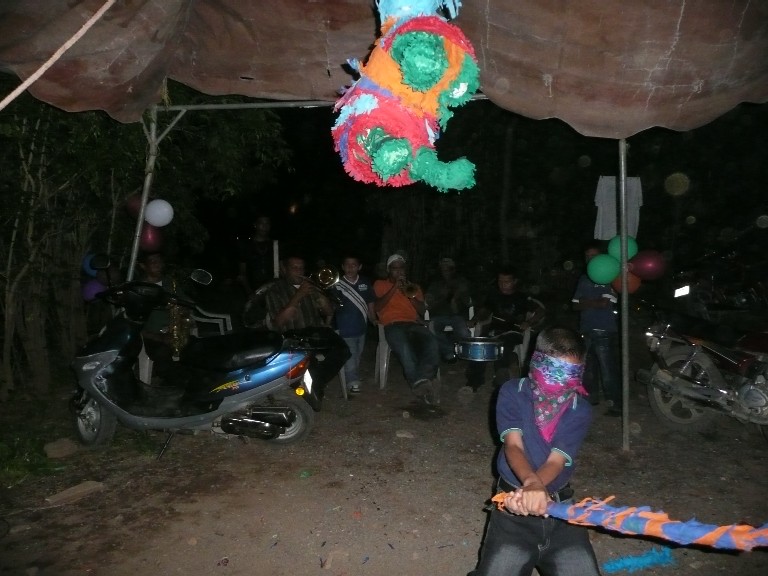
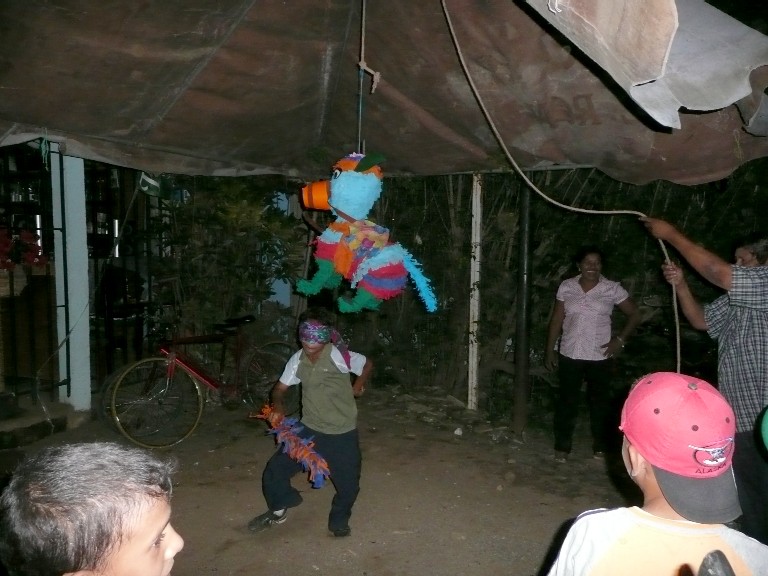
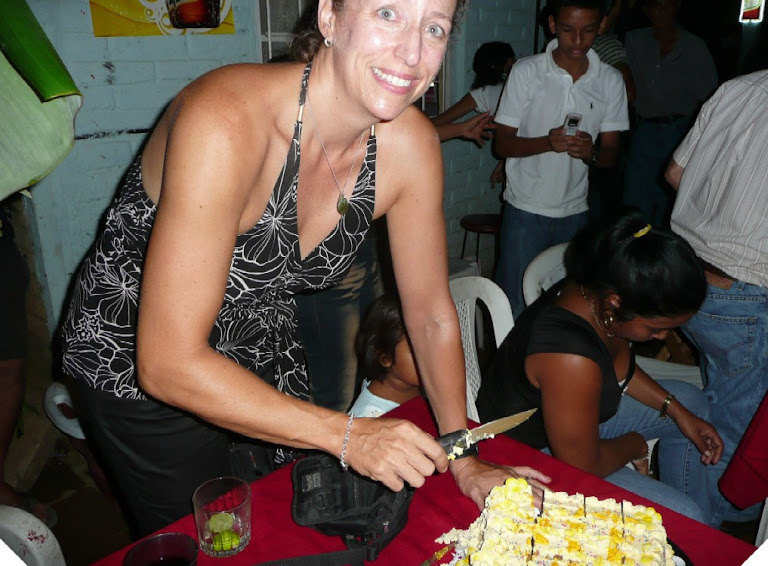
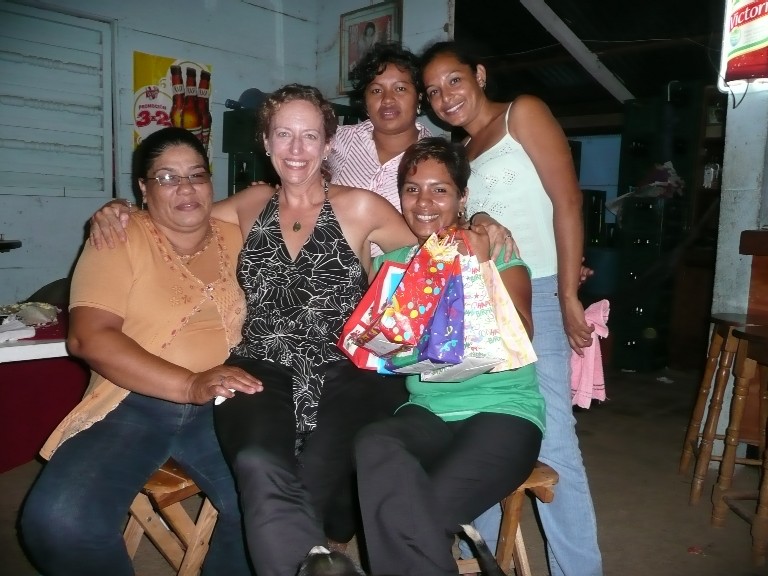

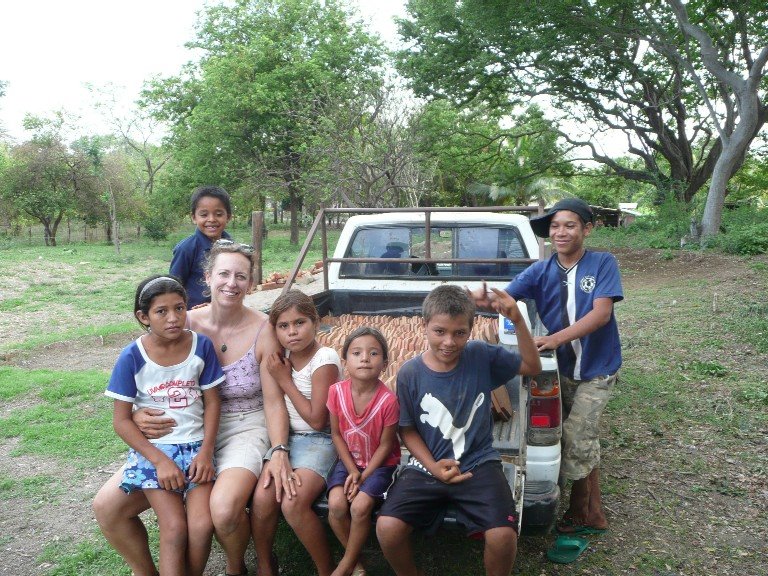
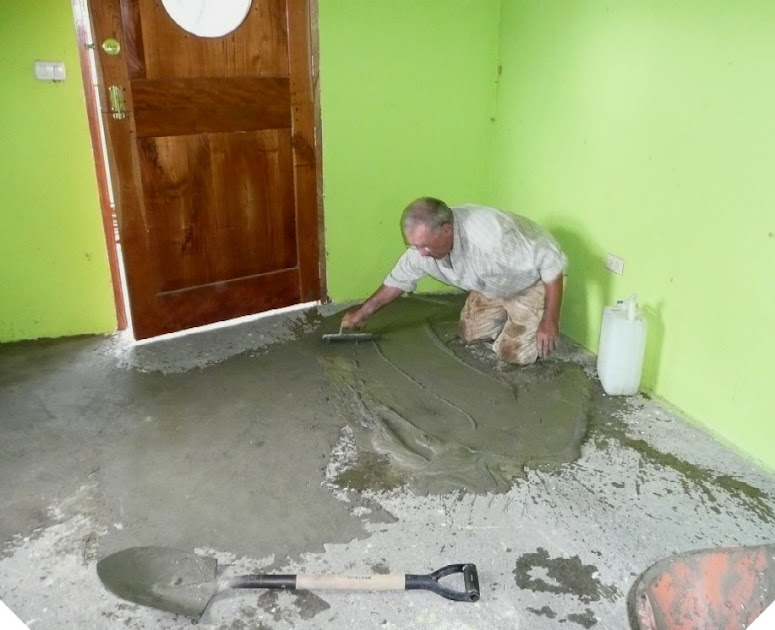
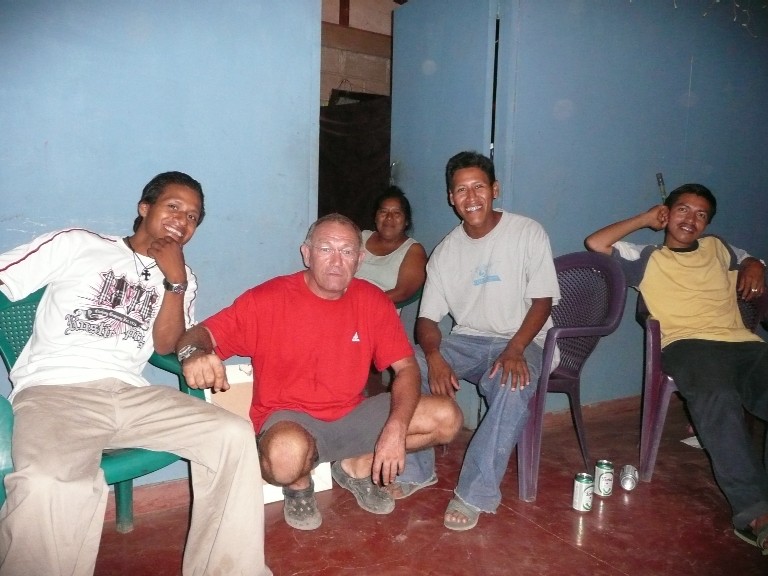

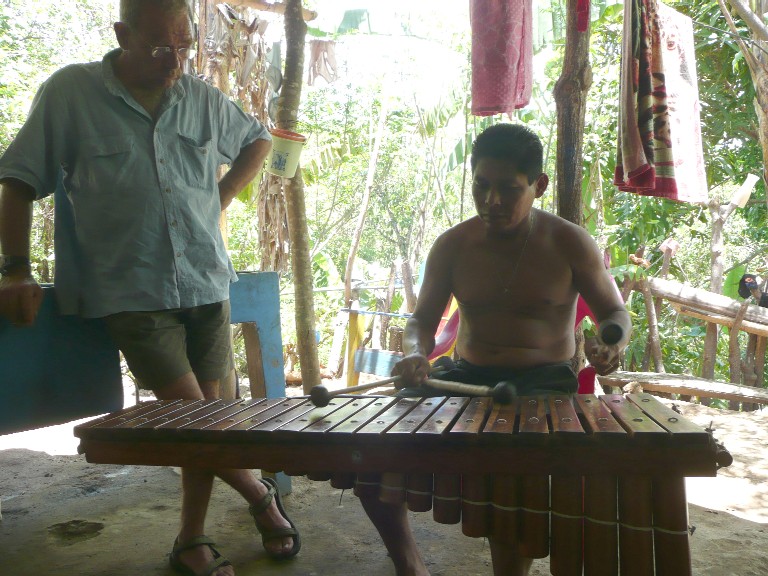
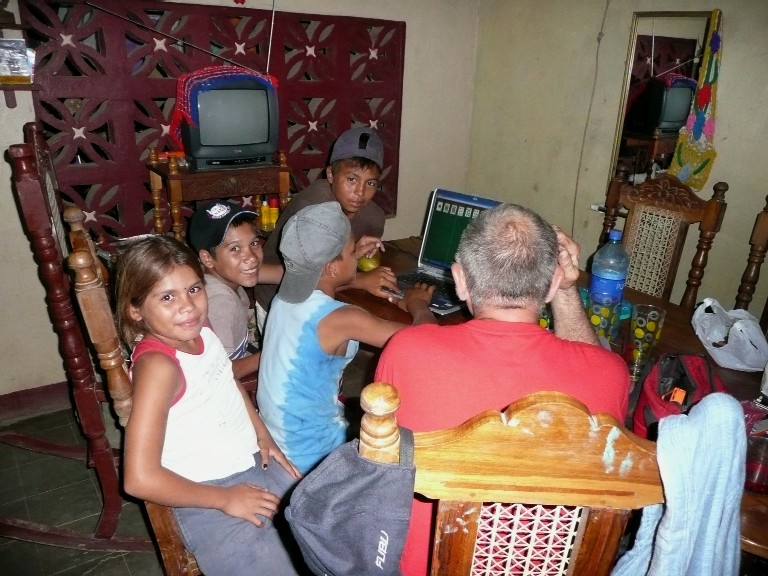

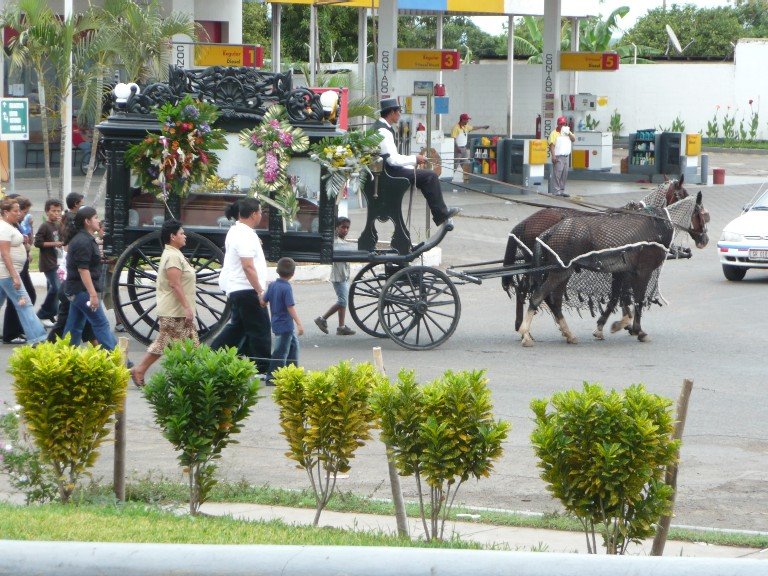
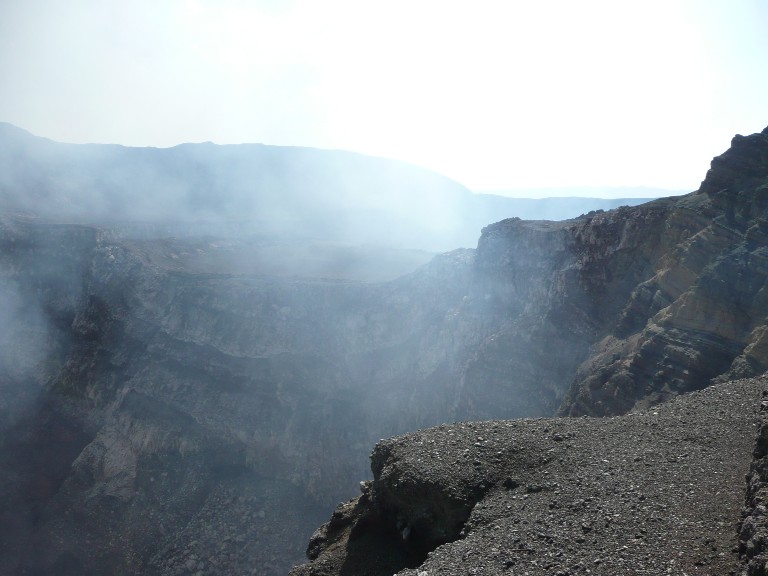
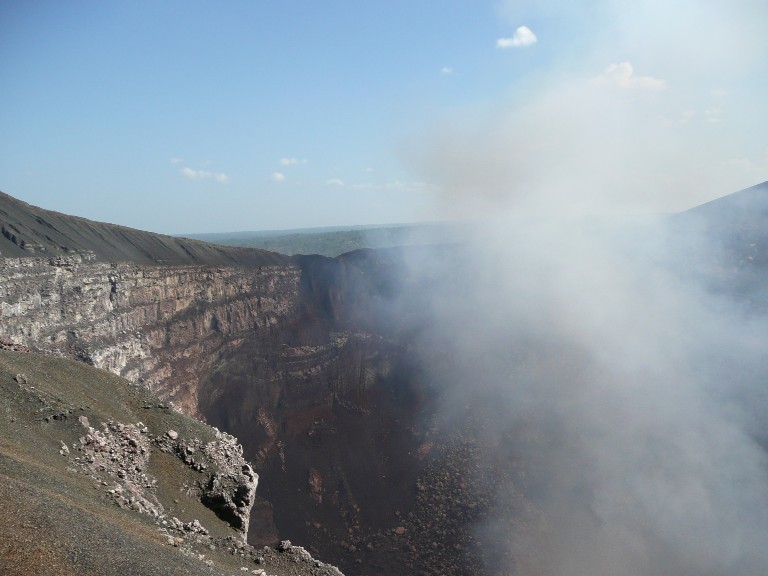

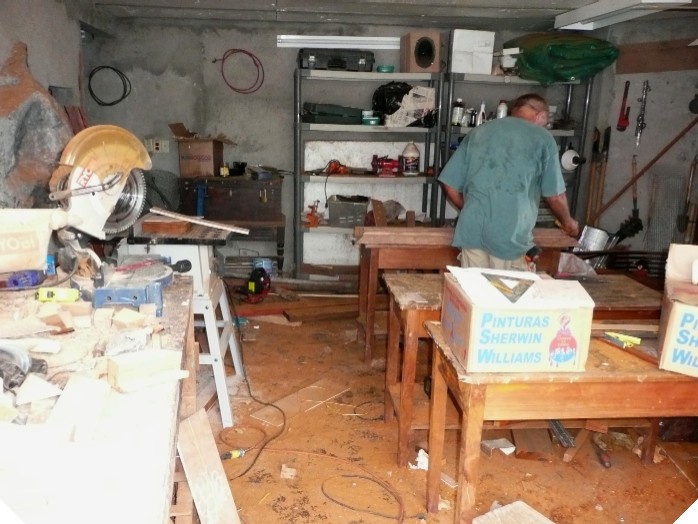
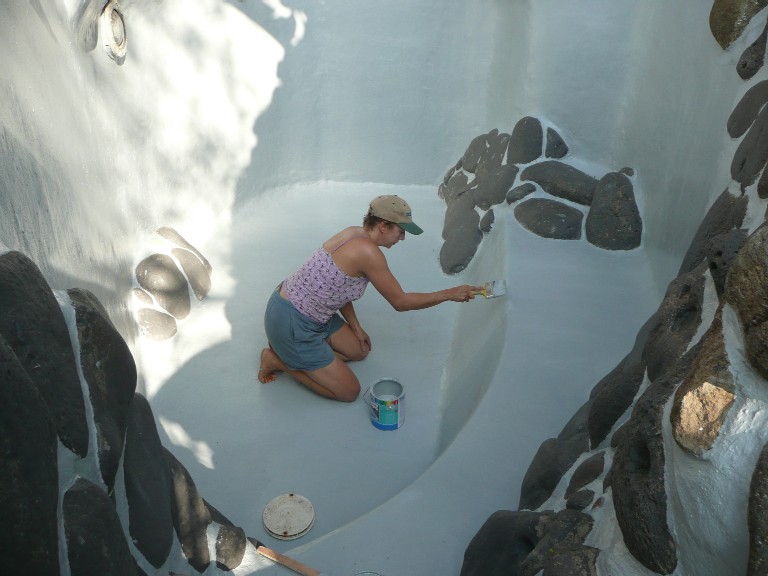
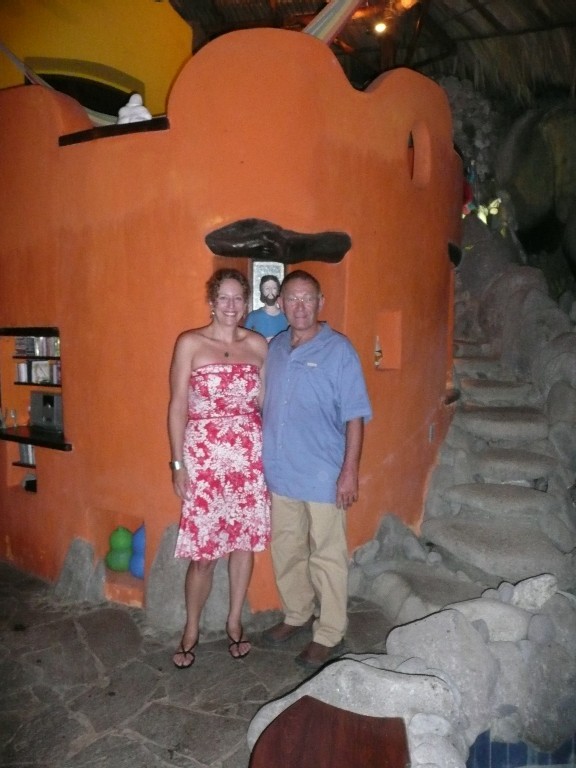
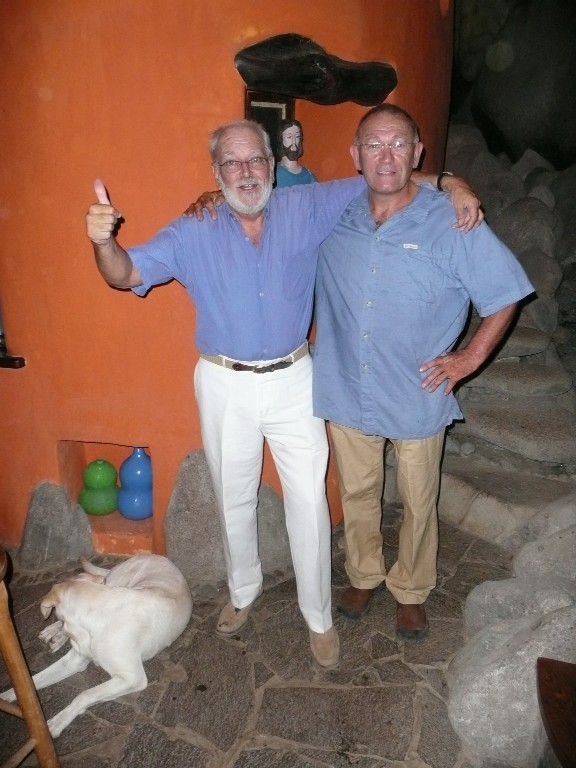
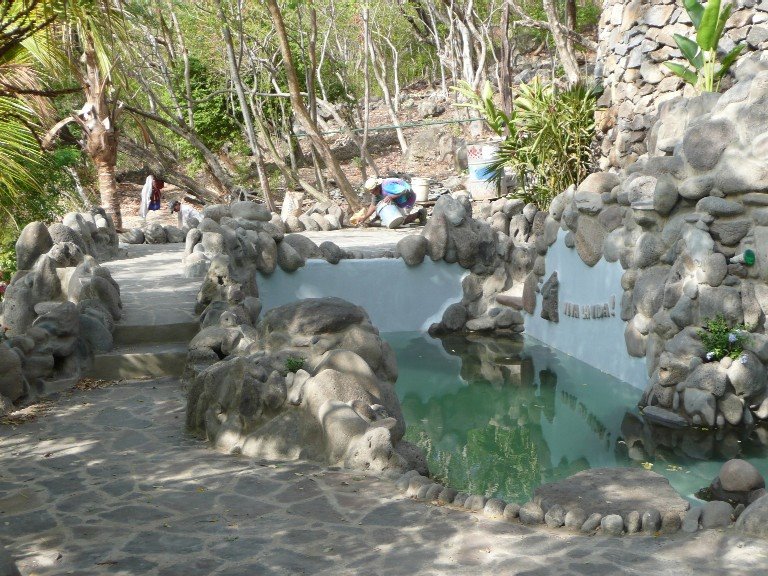
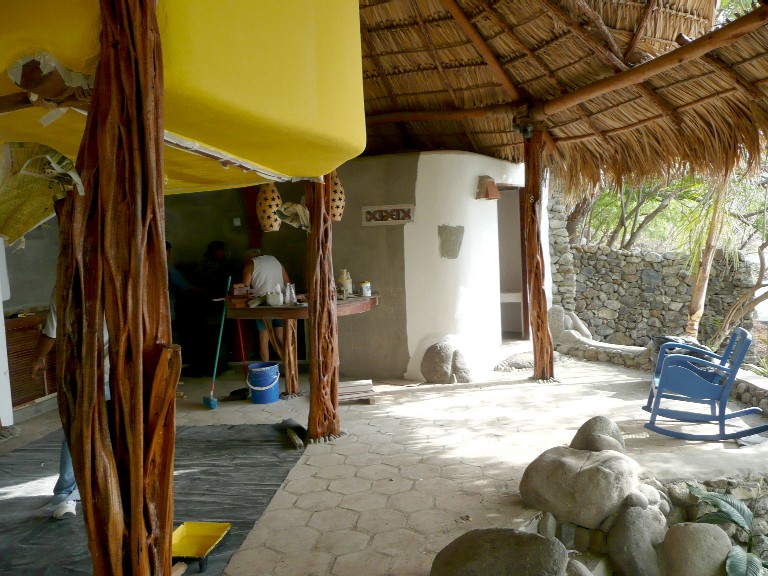

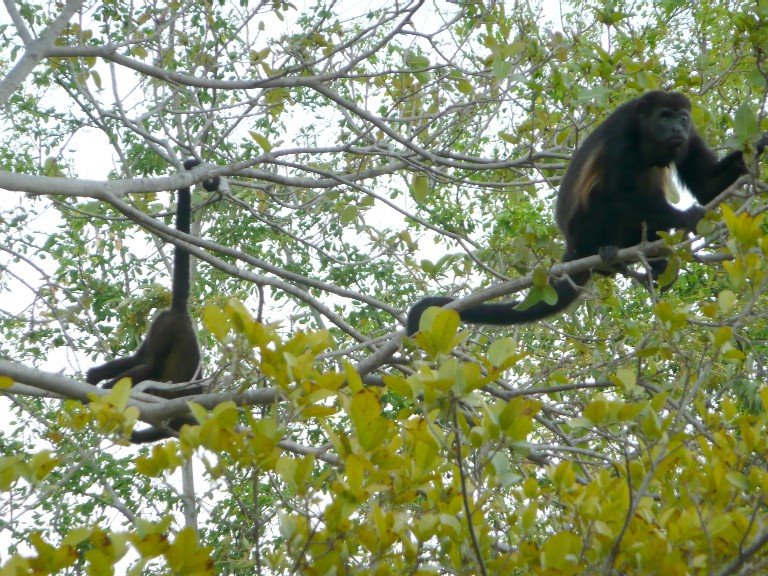
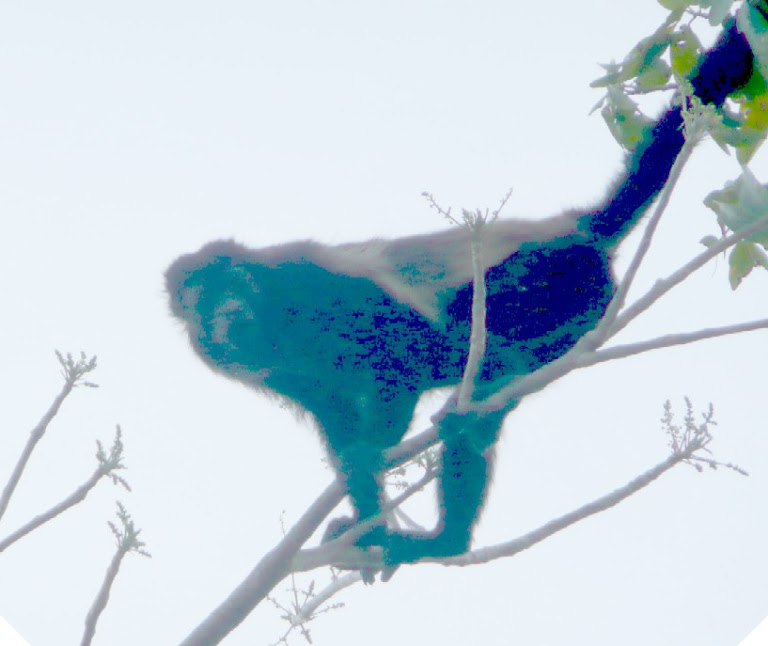

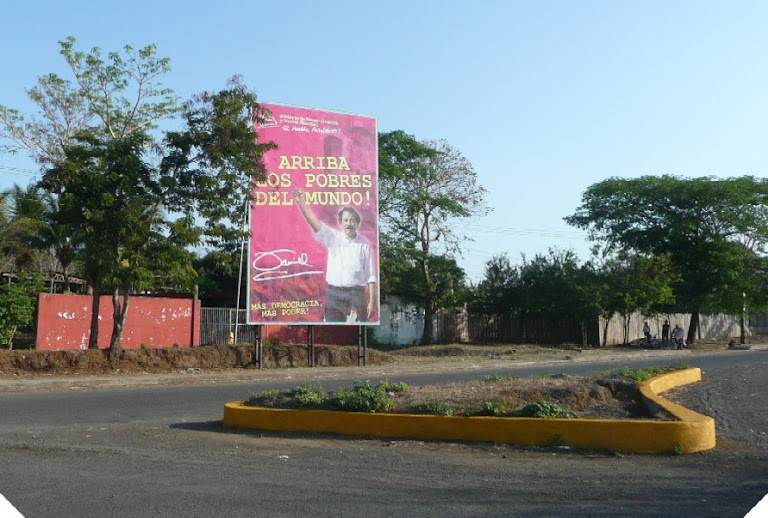

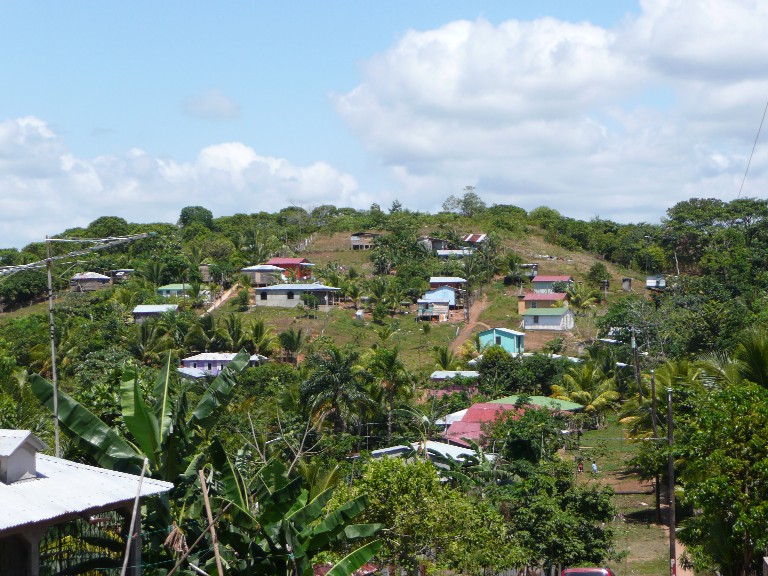
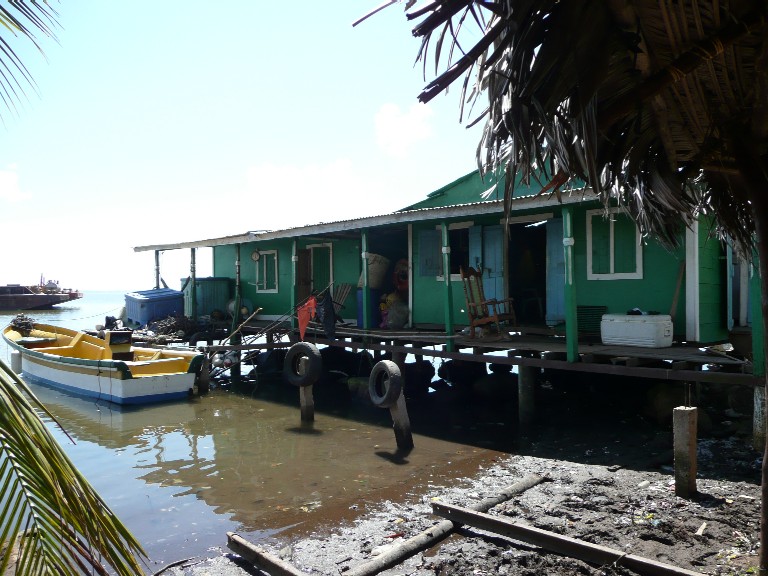
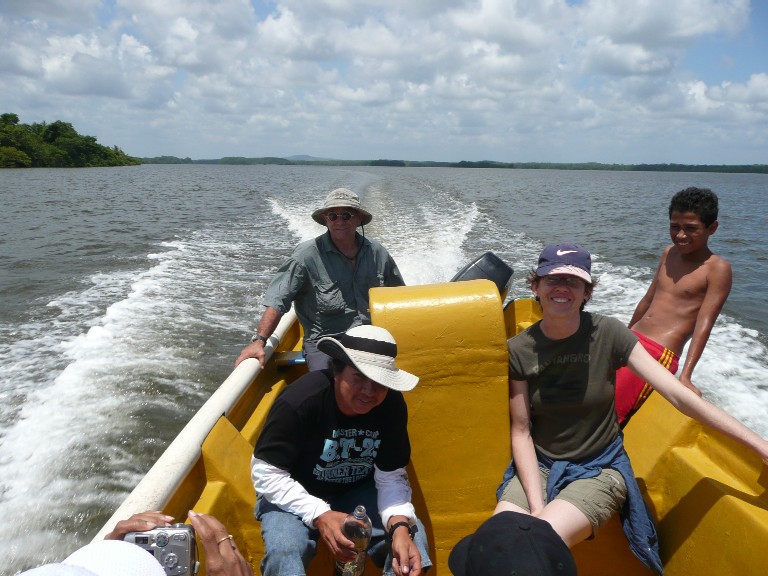
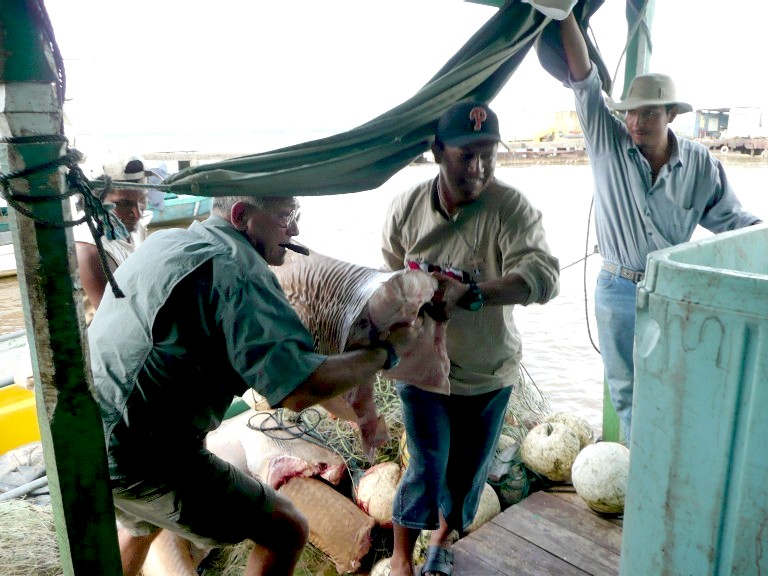
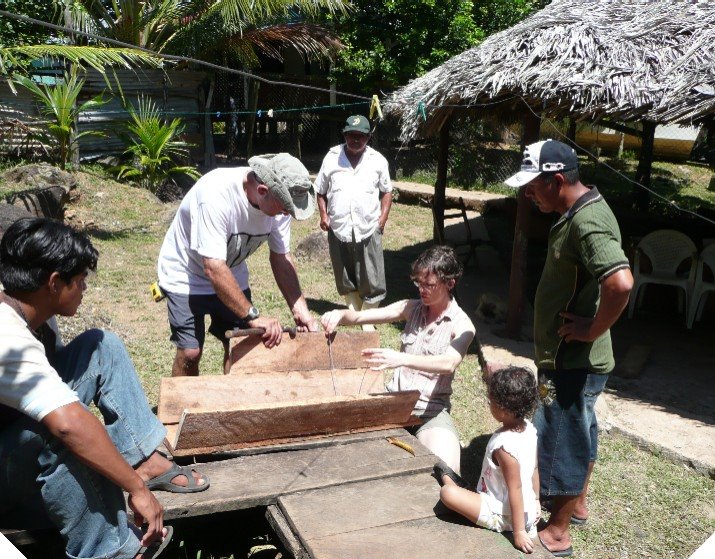
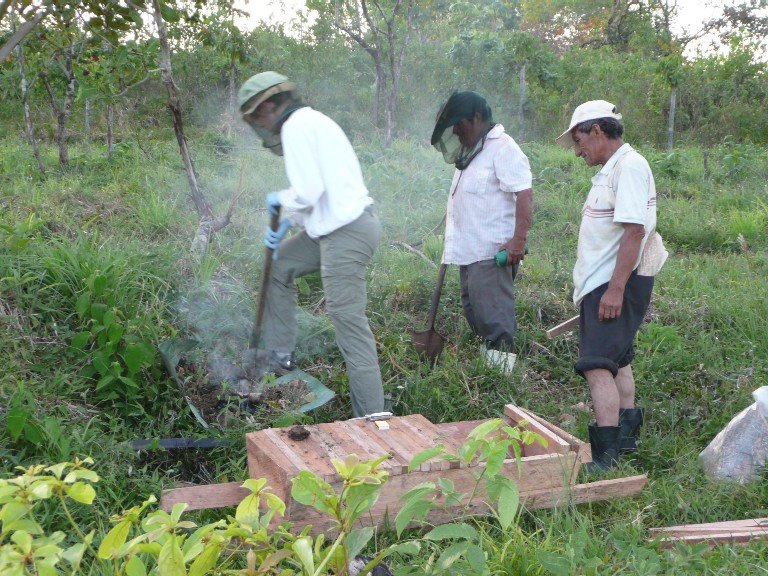
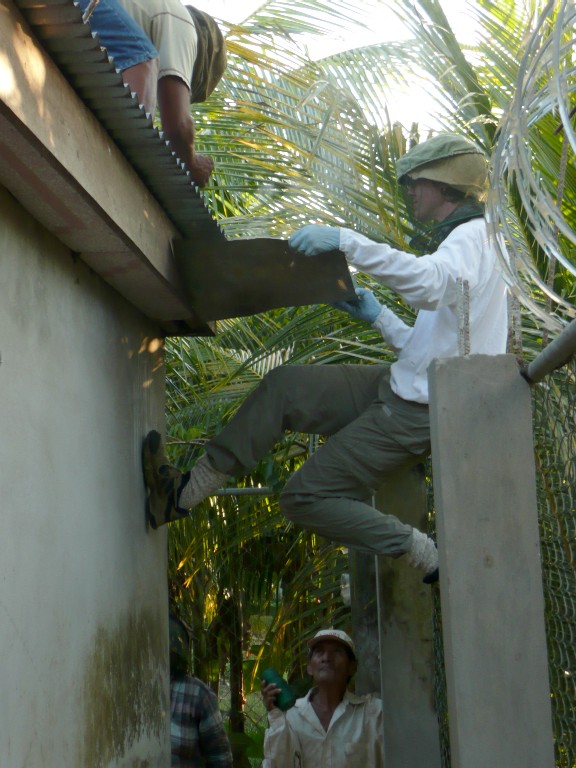
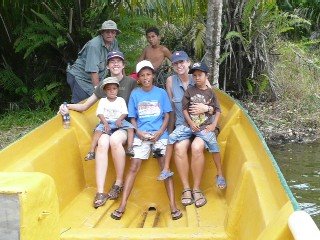
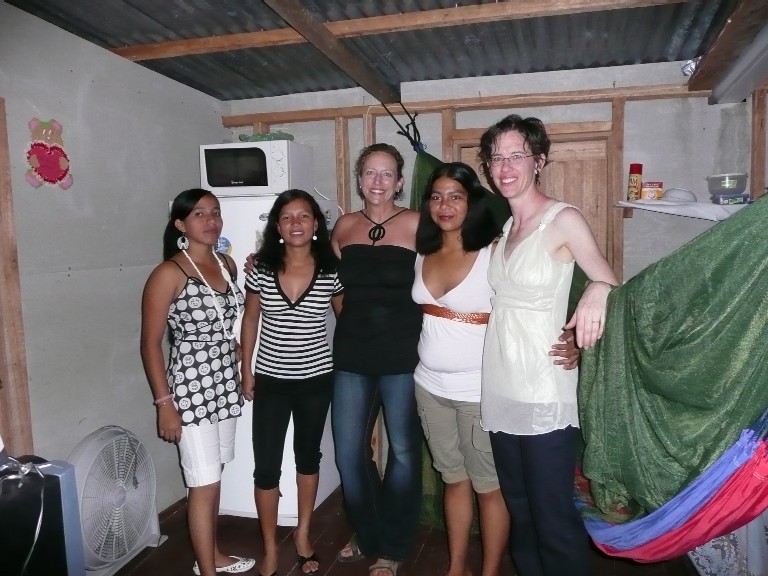

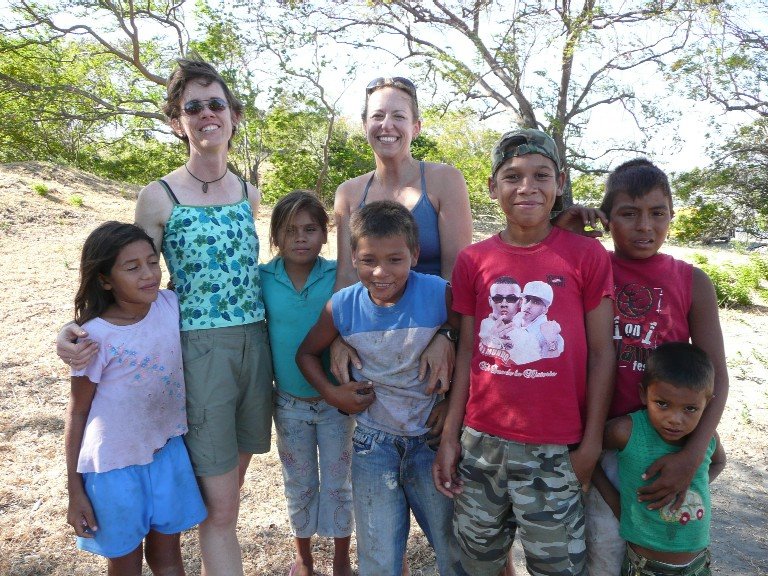
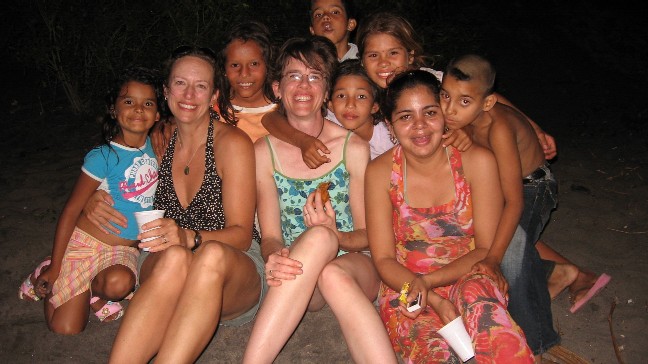
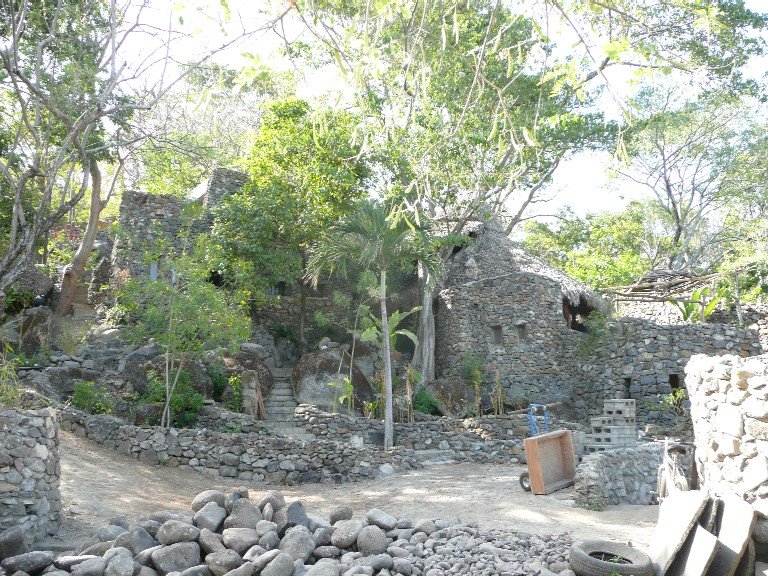
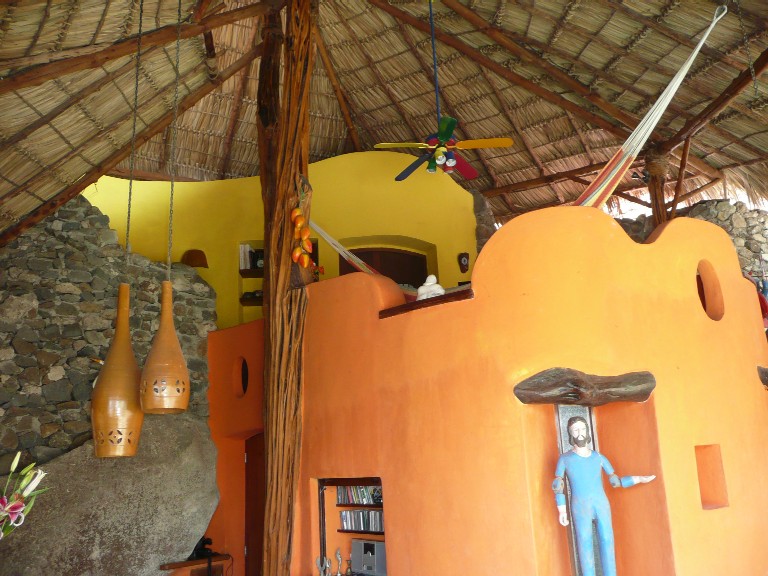
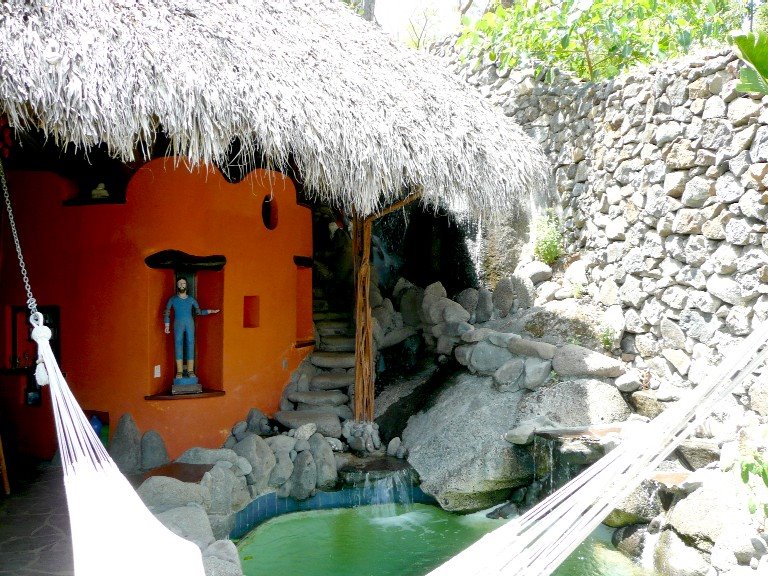
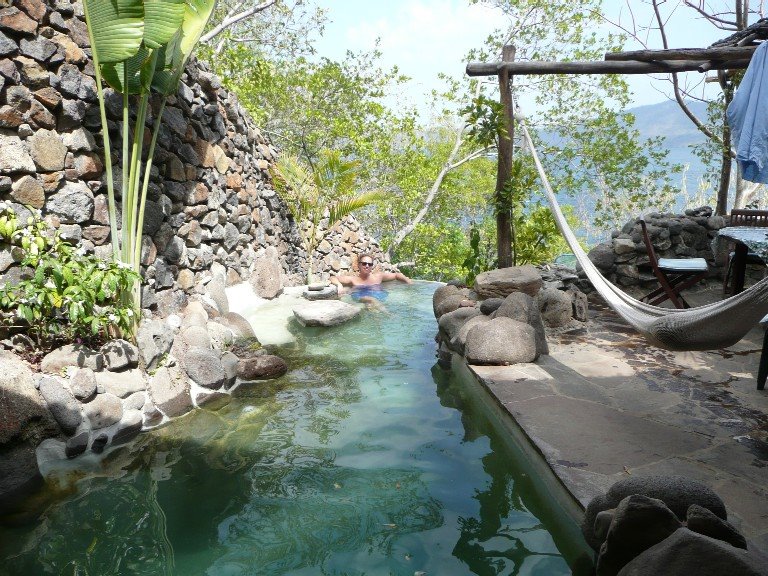

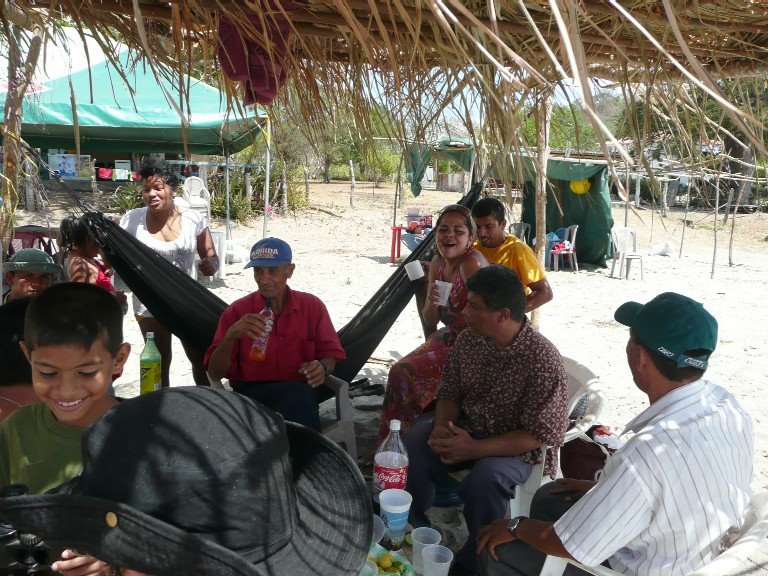
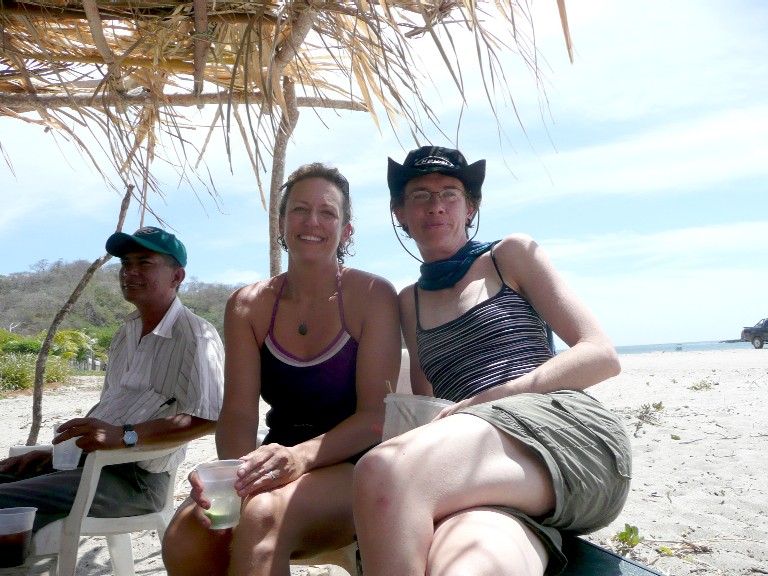
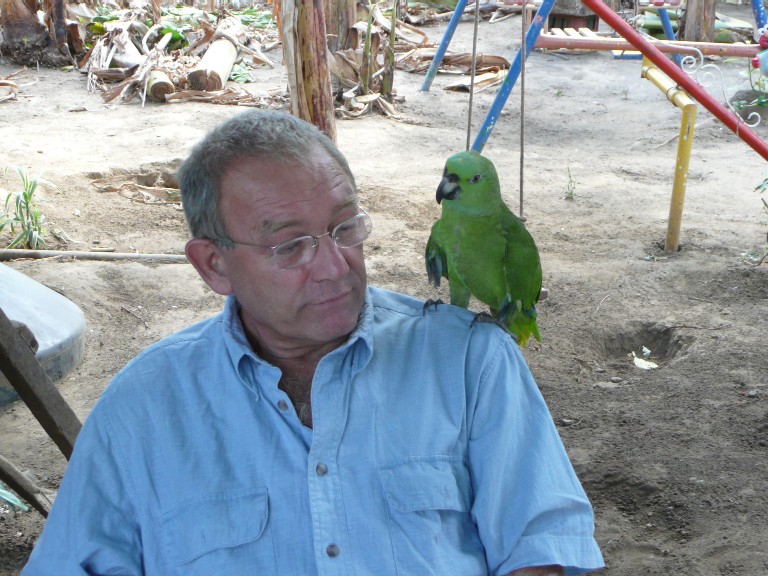
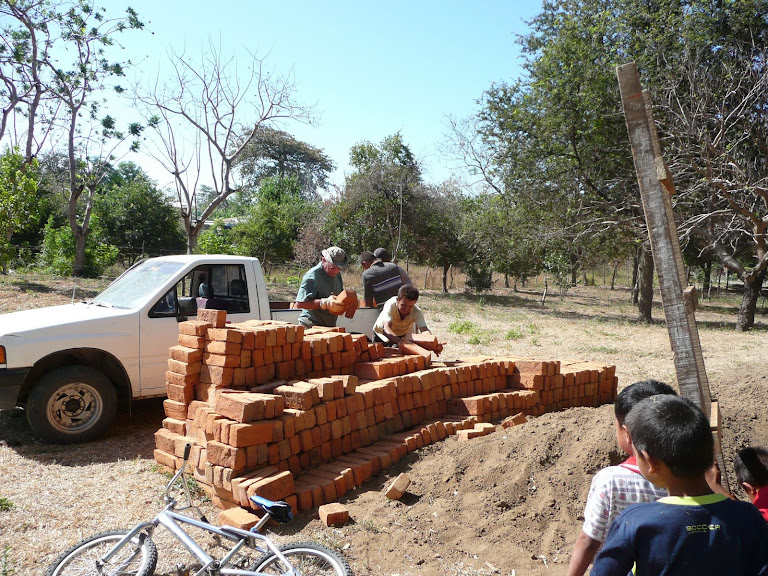
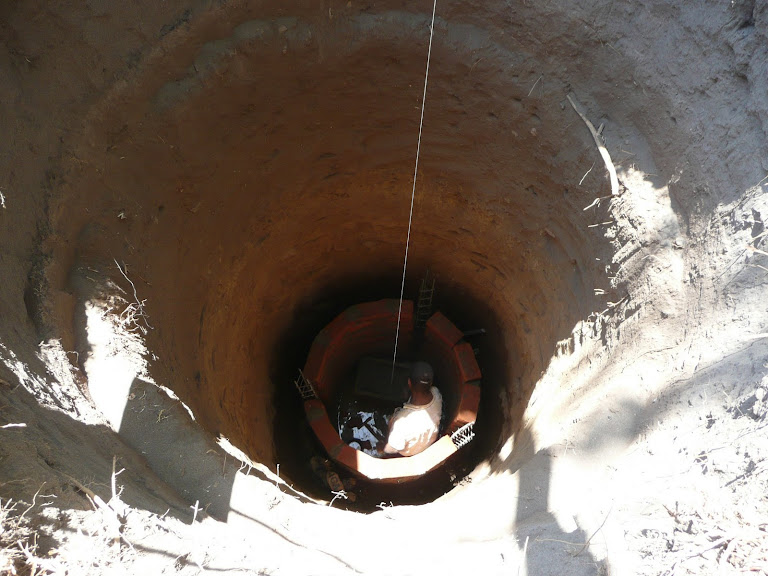
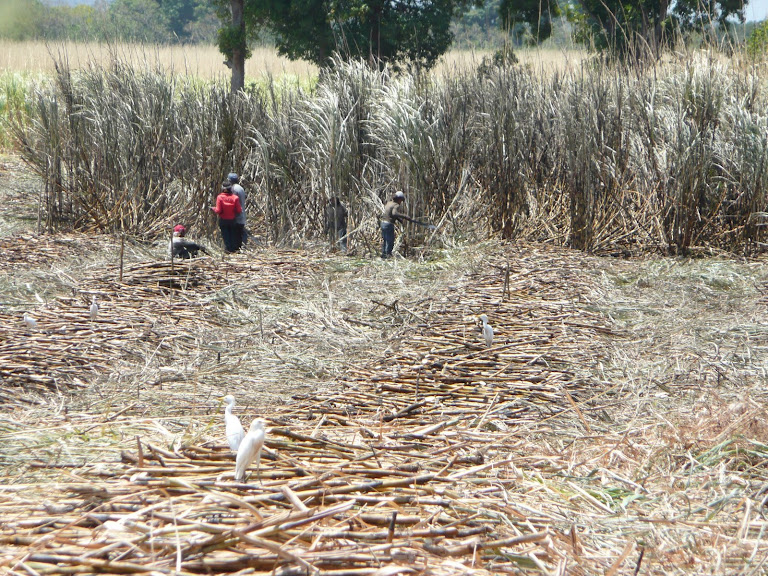

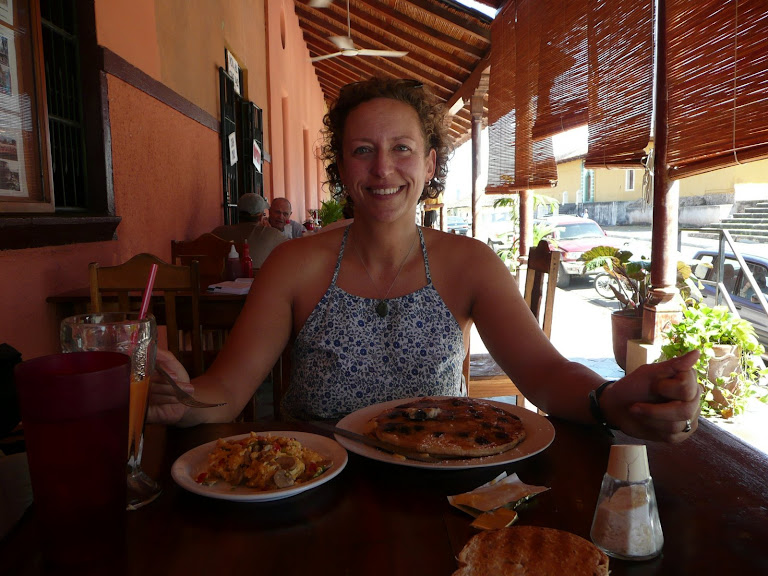

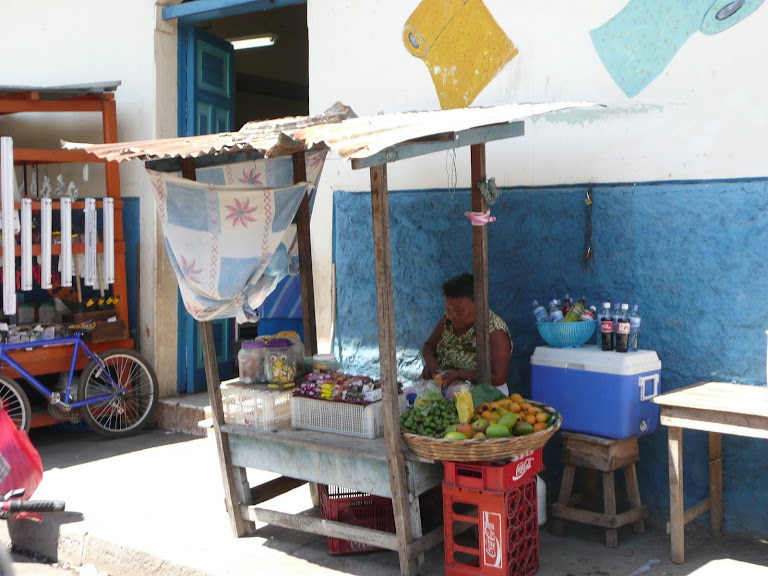
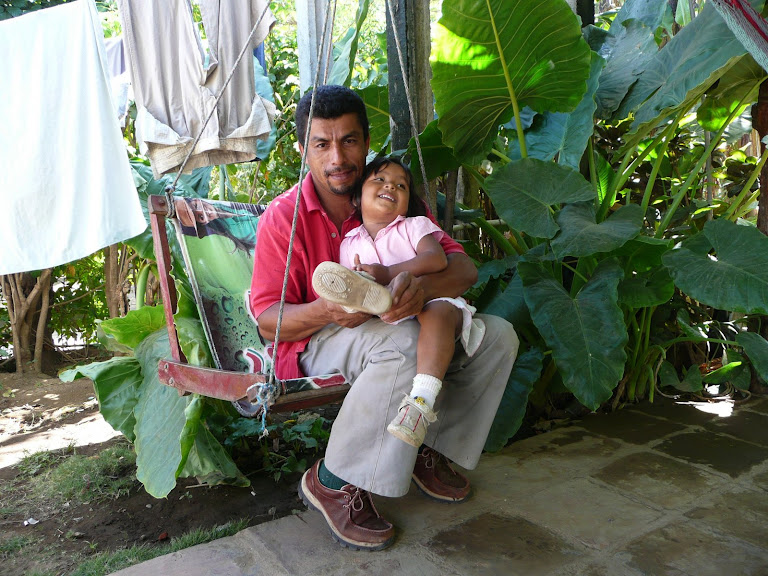
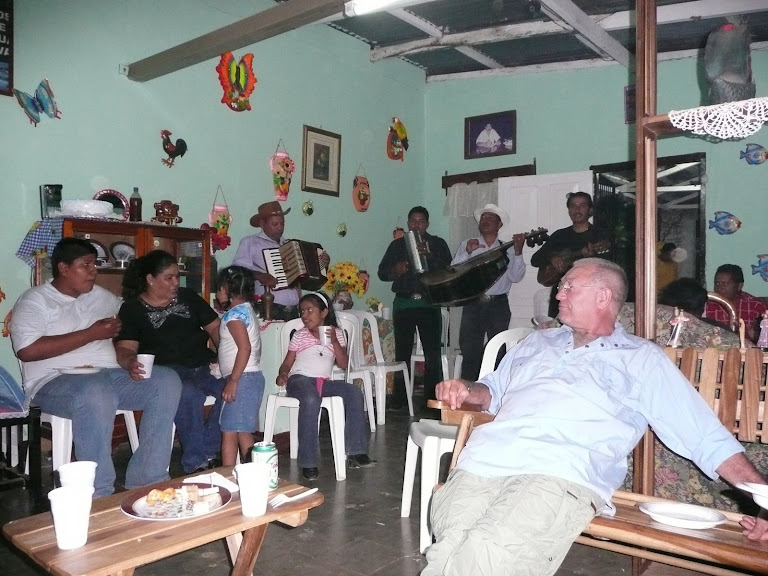
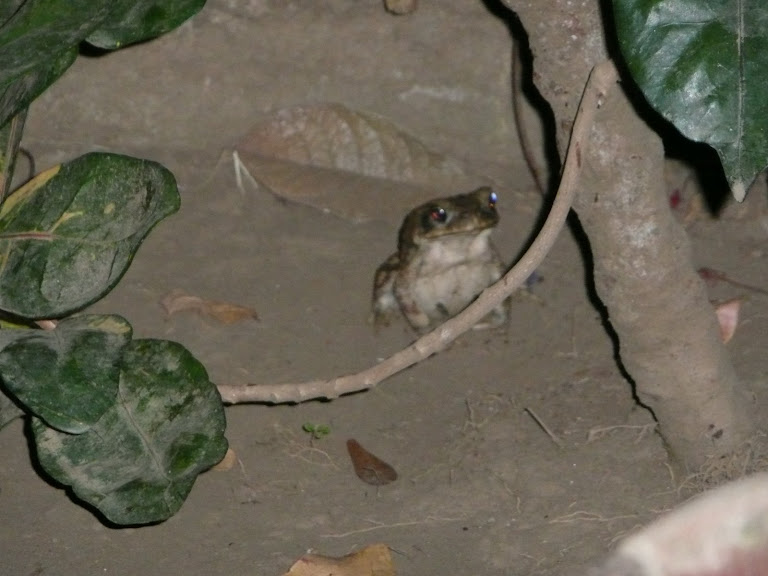
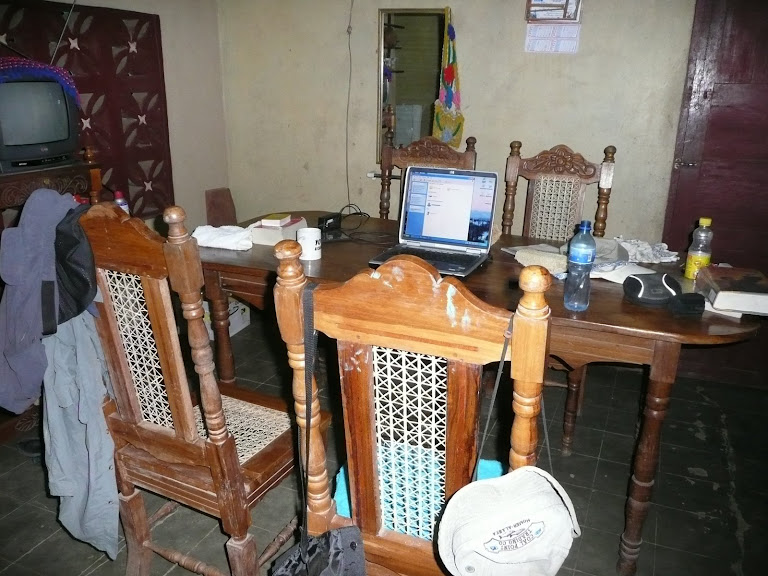
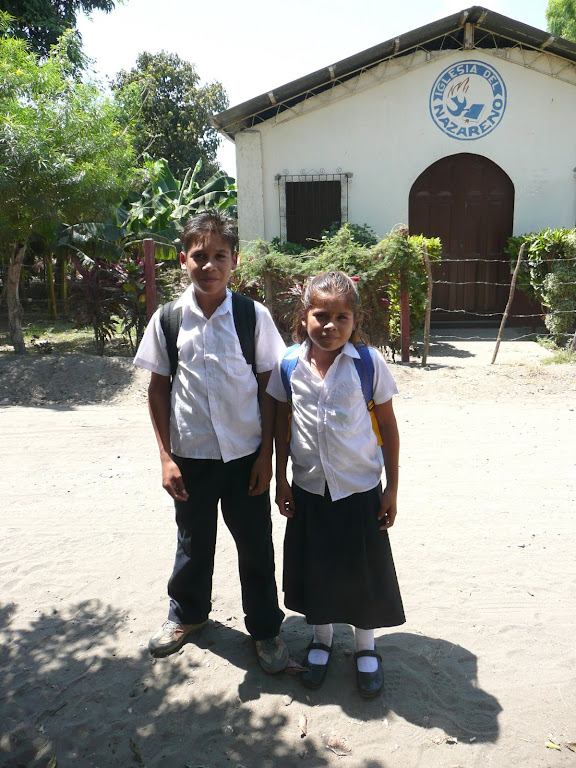
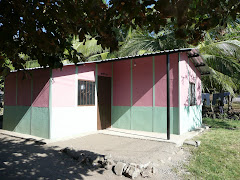
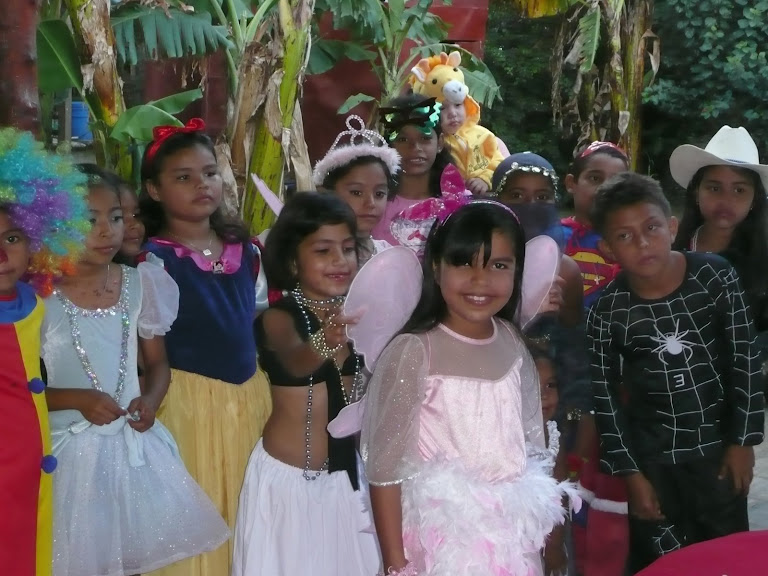
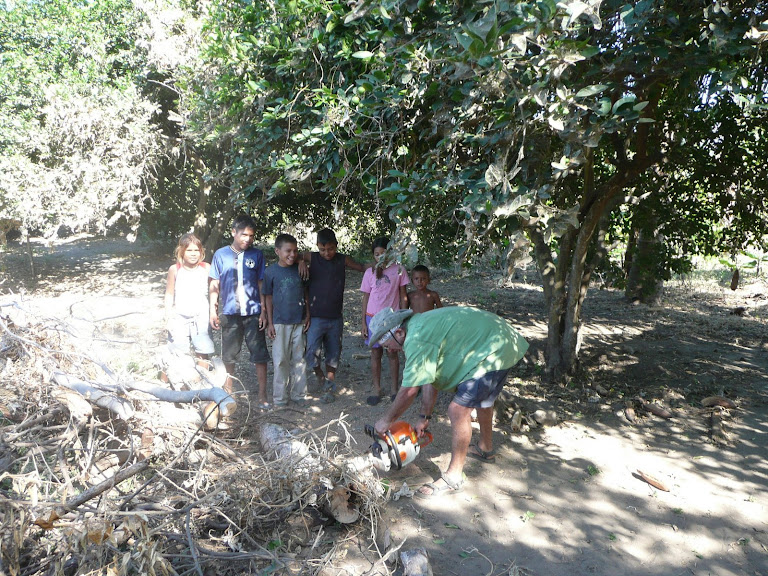
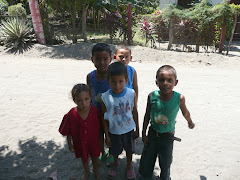
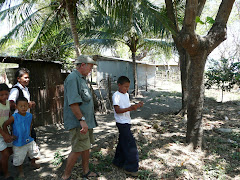
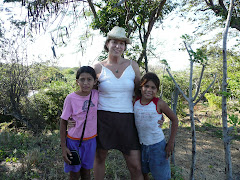
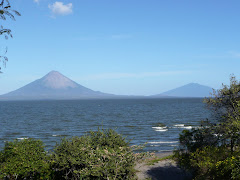
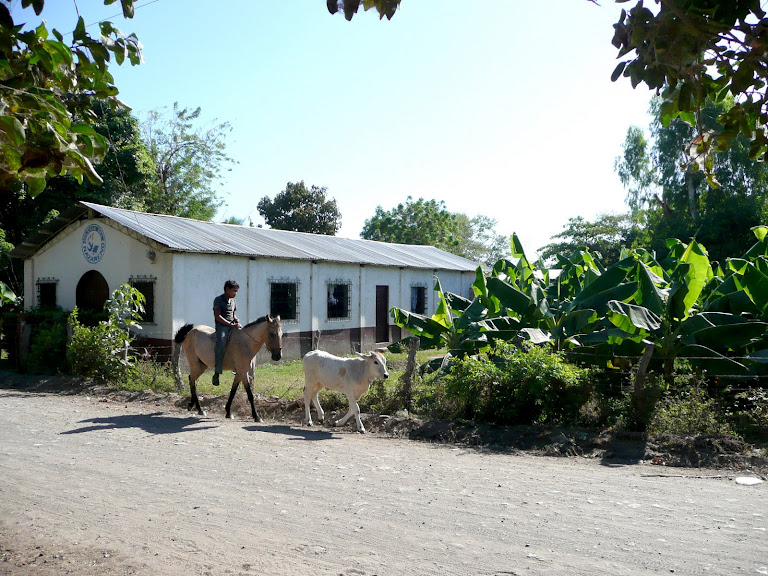
No comments:
Post a Comment